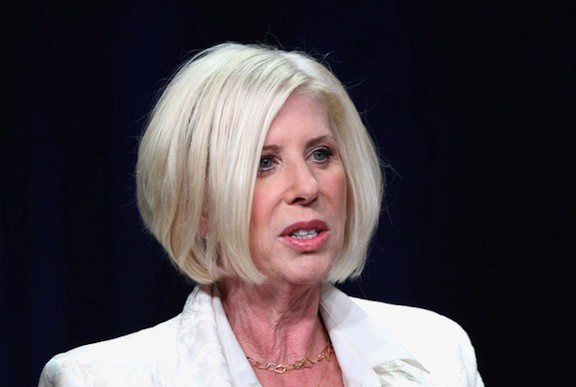Thelma and Louise screenwriter and Nashville creator Callie Khouri set out to be an actress, but soon realized that wasn’t for her. Staring out at the crowd from under a blinding spotlight, she admitted, “I can’t stand people looking at me.”
As part of her master class at the Athena Film Festival, Khouri opened up the floor to a freewheeling, live-streamed Q&A, which began with a question about the trajectory of her career. “What career?” she replied, describing herself as having gone “from job to job
and feeling lucky to have each one.” Khouri’s longing was to be a writer, which
she saw as “the highest calling,” but she also wasn’t always sure of herself. “Sometimes,” she confessed, “I
still feel that way.”
While working as a receptionist at a production company, she
set about writing her first screenplay, about a subject she’d always wanted to
write about: “two women on a crime spree.” She showed the finished draft to a
colleague who got it into the hands of Ridley Scott, who loved it, and the rest
is feminist and film history. Starring Susan
Sarandon and Geena Davis, Thelma and
Louise was bold and controversial, especially the ending, which featured
the two wronged women, aware that the law would never be on their side, driving
gleefully off a cliff. Asked what changes she might make to the ending, Khouri replied, “Have them drive faster.”
Despite Thelma and Louise’s massive success, it took years for
more opportunities to come. This was
partly due to the industry’s bias against women writers and directors and
partly due to Khouri’s own writing process (or lack thereof), which has
resulted, she admitted, in her “ridiculously low output.” At the same time, she
said, it’s an industry in which “you have to make your own luck.”
Of the feature film business, Khouri said, it’s “getting smaller
all the time. There are fewer movies,
fewer mid-range movies, and they’re not directed at a female audience.” She bemoaned the denigration of woman-directed
films as “chick flicks,” ridicule she’s weathered personally, especially with The Divine Secrets of the Ya-Ya Sisterhood,
which she was asked to direct and adapt for the screen.
Which is why she’s so happy to be working in TV. As the creator and executive producer of Nashville, she loves not having to end
the story, being able to show strong female characters who aren’t fighting over “petty things” but over “philosophical issues,” and being able to explore and
change characters over time, as she’s doing right now with Avery, played by real-life “great
guy” Jonathan Jackson, an actor she didn’t want to see forever locked into the “crabby old boyfriend” role. Khouri also
loves TV because, unlike feature films, it’s “a more benevolent place for
writers. You’re the creator and
recognized as such.”
As to whether it’s harder today “to work your way from the
bottom up,” she said, “It’s hard no matter what. This is a tough business. Get
yourself into the business any way you can…. The numbers are not on our side right
now, but that doesn’t mean it’s never going to change. We’ll do it, one picture at a time.”
Angela Bonavoglia writes about women’s issues, including television and cinema. An author and journalist, her work has appeared in many publications, including Ms., the Chicago Tribune, The Nation, and Salon. She blogs at the Huffington Post.







